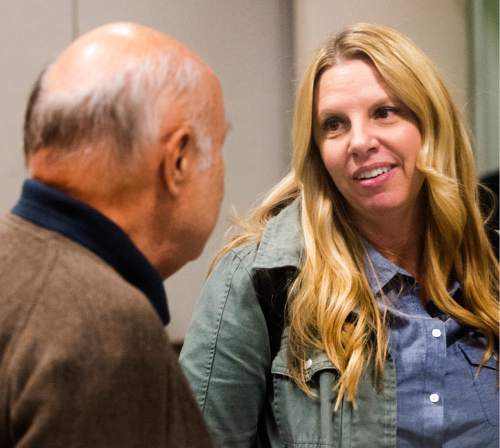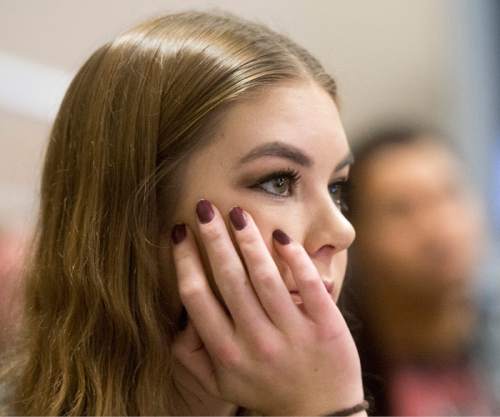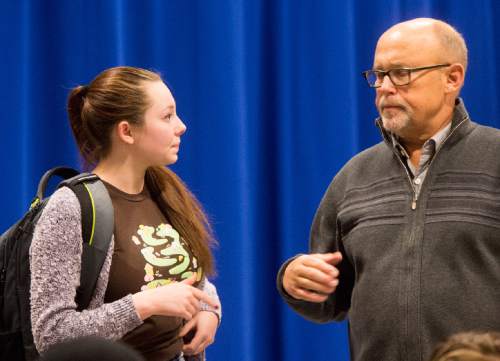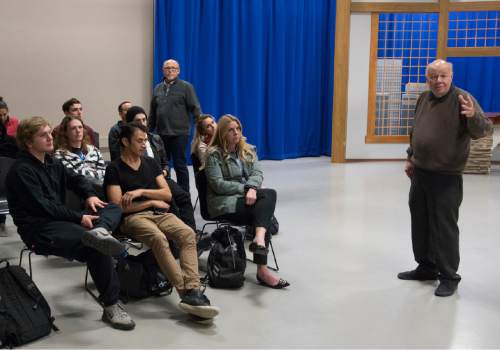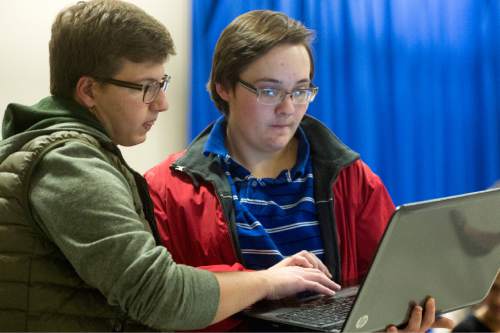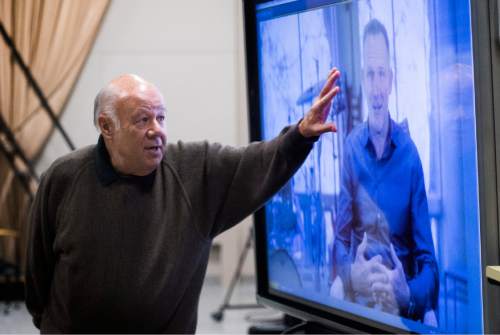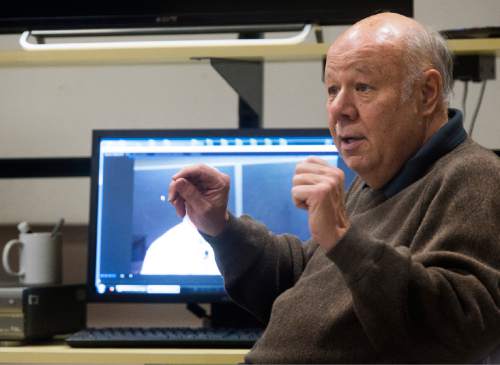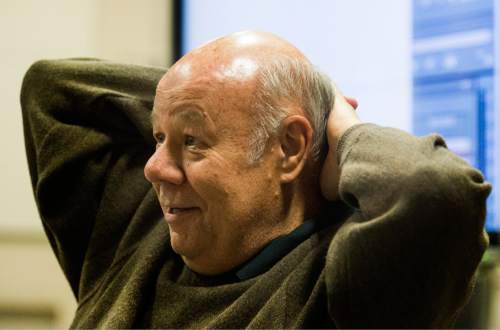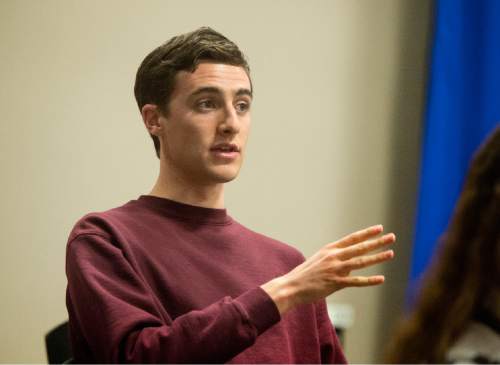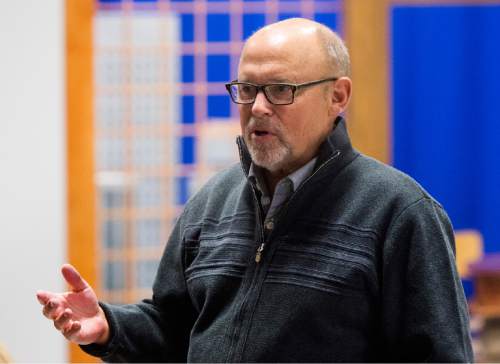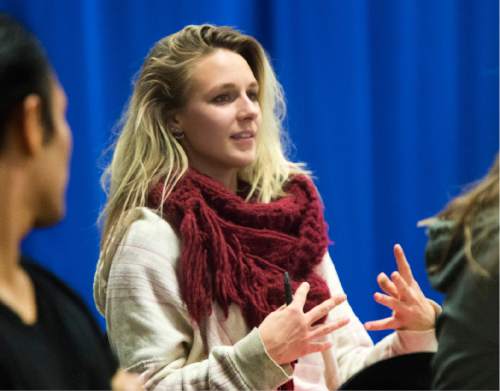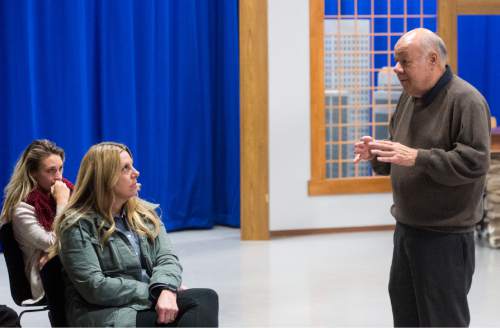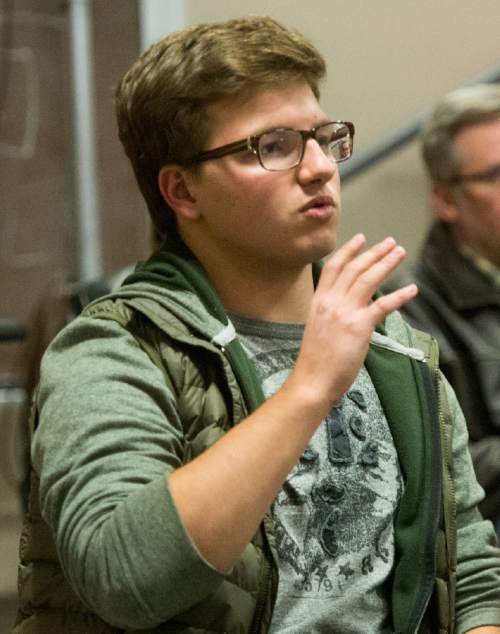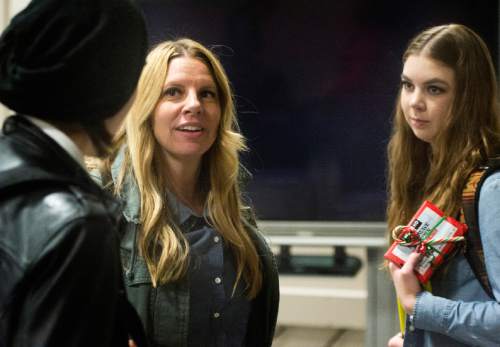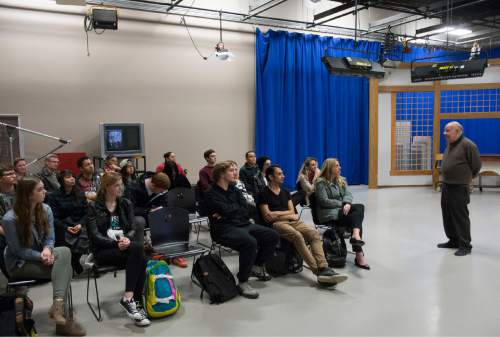This is an archived article that was published on sltrib.com in 2015, and information in the article may be outdated. It is provided only for personal research purposes and may not be reprinted.
Juan Carlos introduces himself to the camera as Bobby.
"I'm 24 years old," he says. "And I'm an illegal immigrant."
It's an admission most friends are unlikely to hear. But as a focus of a documentary film, he is more willing to share.
The introspection under studio lights in a basement classroom is typical of a little-known program bringing together honors students and low-income adult learners at the University of Utah.
The class, called "Humanities in Focus," aims to link members of two communities who otherwise would be unlikely to overlap. It is based on the notion that privilege shouldn't determine who gets heard and who doesn't.
The roughly three dozen students in the class range in age from 20s to 50s. Some have origins as far flung as Nigeria; others are from Salt Lake City.
They have divided into film crews to chronicle slices of life in Utah, from living with autism to being homeless.
Now in its 10th year, the class meets Monday nights over baked potatoes or bowls of chili before reviewing footage and chatting story.
The yearlong course for underclassmen and Utahns below the poverty line remains popular, with a wait list for next year. It has changed some participants for the better — persuading the subject of a piece on domestic violence to seek treatment, for example. And the six university credits often are the start to a high school or college degree.
"It's about letting people find their voice," said Jean Cheney, associate director at the Utah Humanities Council. "It just gives them a camera to tell their stories and the tools to do it well."
It does not have the same institutional support as a typical university course.
While the U. provides some space and covers nominal costs, a patchwork of donations and grants pays the bulk of the $50,000 it takes to rent cameras, microphones and editing software — and help students with gas money or transit passes.
In the communication building on a Monday in November, the tools were at work as Bobby reviewed the past few years for the rolling camera.
He got a DUI. He caused enough trouble to get kicked out by his folks. He slept on friends' couches before landing at a shelter, where an infection almost caused him to lose his left arm. Without identification or an address, his prospects for a steady job, a nice place and a diploma are slim.
"I'm neither an American," he said, "nor a Mexican."
The lack of belonging is the main subject of the documentary, said honors student Stephanie Barajas, who hopes the film will show more Utahns what it's like to be young and living in the state unlawfully.
"It's just that piece of paper" that's missing, she said. "I was born here. That's something I'll never have to worry about."
Barajas was inspired to make the film in part by her boyfriend Diego Catalan, an undocumented U. student.
Catalan demurred with a smile when asked about the film. Lucia Chavarria, a co-instructor, piped up.
"Children of Mexico, they don't see themselves as survivors or having a sense of bravery," she said. Chavarria first read about the program in the newspaper in 2006. She hesitated to sign up, believing herself to be lacking in technical savvy.
"I'm afraid of computers," said Chavarria, originally of Chihuahua, Mexico. "I didn't know how to turn on a camera."
She was not the only novice.
English professor Jeff Metcalf crafted a new syllabus after he taught the U.'s Venture humanities course — an adaptation of the national Clemente program, which was honored by the White House in October for provoking deeper understanding of the human experience and creating better access to cultural resources. In Utah, 500 people have successfully taken the course, versions of which are also hosted by Weber State University, Westminster College and Southern Utah University.
Metcalf, along with Chavarria and other Venture students, wanted to take the class a step further and create a forum for community activism.
They landed on film, but had no experience and no resources.
"They said, 'Where are you going to get the money?' " Metcalf said. He began calling up colleagues, enlisting Emmy-winning documentary professor Craig Wirth as a co-teacher.
The extra effort it took Chavarria to learn to operate the camera and software was worth it for a broader lesson, she said.
"I learned if somebody is willing to open up and share," she said, "dignify that and listen."
Chavarria is eager to see Barajas' movie and others at a screening in April.
"In the end, they all carry the same message," she said. "To me, it's all just hope."
Twitter: @anniebknox


